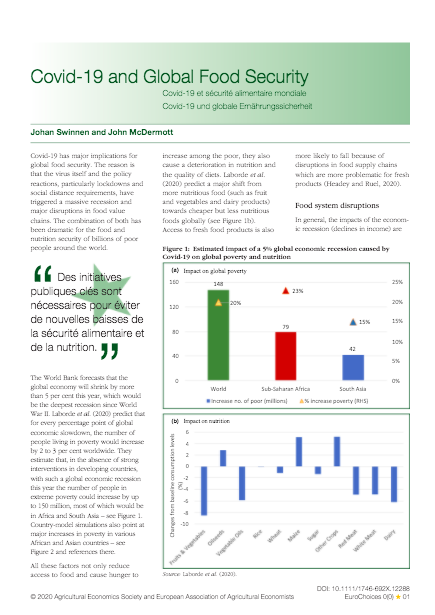Covid‐19 and Global Food Security

ABSTRACT
Covid‐19 has major implications for global food security. The virus itself and the policy reactions have triggered a massive recession and major disruptions in food value chains. The combination of both has been dramatic for the food and nutrition security of billions of poor people around the world. The impacts are heterogeneous, depending on the nature of the commodity, the resource‐intensity of the food systems, and the level of economic development. Covid‐19 affects the food security and nutrition of poor people more strongly than that of richer people. Women, children and migrants are particularly affected. It is important to balance movement control and other social distancing measures with policy initiatives to improve the food and nutrition security and livelihoods of vulnerable groups. A crucial issue moving forward is to make food supply chains, and food systems generally, more resilient for the future. While many food systems have been significantly disrupted, others have been more resilient, with food supplies relatively unaffected. Innovations are helping to overcome obstacles and make food supply chains more resilient for the future. Overall, the insights and lessons from Covid‐19 should help to design better policies and build more resilient and inclusive food systems for the future.